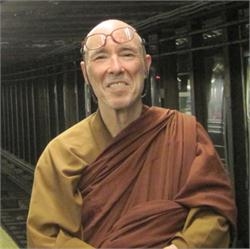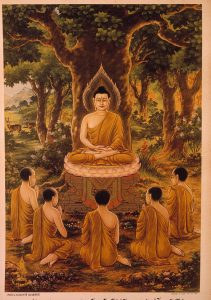Forward by His Holiness the Dalai Lama to “The Buddha’s Teachings on Social & Communal Harmony”
A reflection on practice by Other Teachers & Folks We Value
 nown scholar-monk Bhikkhu Bodhi has collected & translated the Buddha’s teachings on conflict resolution, interpersonal & social problem-solving, and the forging of harmonious relationships in the 2016 book “The Buddha’s Teachings on Social & Communal Harmony“ from Wisdom Publications. The Suttas, drawn from the Pali Canon, deal with such topics as quelling of anger, good friendship, intentional communities, settlement of disputes & the establishing of an equitable society. The Buddha’s teachings on community relationships, attitudes, behavior & the practices to make it all work harmoniously come directly out of real life experience & observation within his monastic communities & within lay communities he & his monastic community interacted with.
nown scholar-monk Bhikkhu Bodhi has collected & translated the Buddha’s teachings on conflict resolution, interpersonal & social problem-solving, and the forging of harmonious relationships in the 2016 book “The Buddha’s Teachings on Social & Communal Harmony“ from Wisdom Publications. The Suttas, drawn from the Pali Canon, deal with such topics as quelling of anger, good friendship, intentional communities, settlement of disputes & the establishing of an equitable society. The Buddha’s teachings on community relationships, attitudes, behavior & the practices to make it all work harmoniously come directly out of real life experience & observation within his monastic communities & within lay communities he & his monastic community interacted with.The historical Buddha, Shakyamuni, lived, attained enlightenment & taught in India more than 2,500 years ago. However, I believe that much of what he taught so long ago can be relevant to people’s lives today. The Buddha saw that people can live together freely as individuals, equal in principle & therefore responsible for each other.
much of what he taught so long ago can be relevant to people’s lives today. The Buddha saw that people can live together freely as individuals, equal in principle & therefore responsible for each other.
He saw that the very purpose of life is to be happy. He talked about suffering in the context of ways to overcome it. He recognized that while ignorance binds beings in endless frustration & suffering, the development of understanding is liberating. The Buddha saw that every member of the human family, man & woman alike, has an equal right to liberty, not just in terms of political or even spiritual freedom, but at a fundamental level of freedom from fear & want. He recognized that each of us is just a human being like everyone else. Not only do we all desire happiness & seek to avoid suffering, but each of us has an equal right to pursue these goals.
Within the monastic community that the Buddha established, individuals were equal, whatever their social class or caste origins. The custom of walking on alms round served to strengthen the monks’ awareness of their dependence on other people. Within the community, decisions were taken by vote & differences were settled by consensus.
The Buddha took a practical approach to creating a happier, more peaceful world. Certainly, he laid out the paths to liberation & enlightenment that Buddhists in many parts of the world continue to follow today, but he also consistently gave advice that anyone may heed  to live more happily here & now….
to live more happily here & now….
We human beings are social animals. Since our future depends on others, we need friends in order to fulfill our own interests. We do not make friends by being quarrelsome, jealous & angry, but by being sincere in our concern for others, protecting their lives & respecting their rights. Making friends & establishing trust are the basis on which society depends. Like other great teachers the Buddha commended tolerance & forgiveness in restoring trust & resolving disputes that arise because of our tendency to see others in terms of ‘us’ & ‘them.’
See more about Other Teachers & Folks We Value
